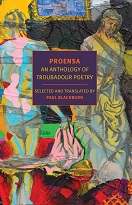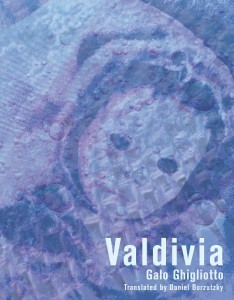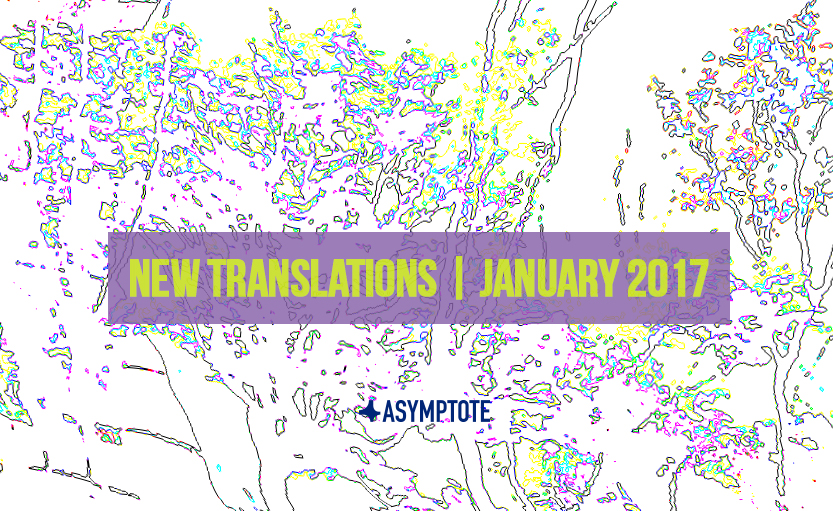
Proensa: An Anthology of Troubadour Poetry, tr. by Paul Blackburn, edited and introduced by George Economou. New York Review Books.
Review: Nozomi Saito, Executive Assistant
Translated from the Occitan by Paul Blackburn, Proensa: An Anthology of Troubadour Poetry is a remarkable collection of troubadour poetry, which had vast influence on major literary figures, including Dante and Ezra Pound. As poems of the twelfth century, the historic weight of troubadour poetry might intimidate some, but the lively language in Paul Blackburn’s translations is sure to shock and delight twenty-first century readers in the same way that these poems did for their contemporary audiences.
The context surrounding the original publication of Proensa in 1978 is nearly as interesting as the troubadour poems themselves. Although Proensa was in fact ready for publication in the late 1950s, lacking only an introduction, the collection was not published until seven years after Paul Blackburn’s death. The manuscript was then given to George Economou, who edited the collection and saw to its posthumous publication.
The circumstances of the publication of Proensa, of the pseudo-collaboration between a deceased translator and a living editor, are reminiscent of another publication that came out in 1916, Certain Noble Plays of Japan. This manuscript was a collection of Noh plays translated by Ernest Fenollosa, which Ezra Pound received after Fenollosa’s death.
Interestingly, it was Ezra Pound’s influence and the great importance he placed on the troubadours that ignited the fire of translation within Blackburn. Pound, as Economou explains, “did more than any other twentieth-century poet to introduce the troubadours and their legacy to the English-speaking world”. Pound viewed the translation of the troubadours as an all-important task, and Paul Blackburn answered the call-to-action.
Six degrees of Ezra Pound. The coincidence (if it is one) begs the question of why Proensa is being reprinted now, thirty-nine years after its original publication, and one hundred years after the publication of Certain Noble Plays.
In the case of Certain Noble Plays, the significance of its publication was that Pound (as well as William Butler Yeats) felt that the Noh plays could revitalize Anglo-American poetry and drama in ways that suited modernist aesthetics. One might wonder if the same intention lies behind the reprinting of Proensa—if these troubadour poems are appearing again to twenty-first century readers to revitalize poetry and performance using literary forms from the past.
In terms of translation, both Pound and Blackburn practiced a method of translation that Pound called “interpretive translation.” In “Guido’s Relations,” Pound explains that interpretive translation behests the translator with the task of translating into a contemporary language that conveys the same weight and impact as the poetic language did for audiences of the original. In Blackburn’s case, translation involved “getting into other people’s heads”. Economou remarks that “the art of translation as practiced by a poet like Blackburn is also an act of interpretation.”
That interpretation and the translations that ensue from it allow modern readers of Proensa to “get into the heads” of contemporary audiences who were seeing the performances of troubadour poetry. Modern readers unfamiliar with troubadour poetry may find the language shocking and even vulgar, but that effect is intentional because it is intended to impress upon modern readers the same impact that the performance of troubadour poetry had on contemporary audiences. In “Farai un vers pos mi sonelh,” for instance, the notable troubadour Guillem IX, Duke of Aquitaine tells of the erotic encounters of a knight in overtly sexual and lewd language:
Now hear how many times I fucked them:
a hundred-and-eighty and eight times more,
until I nearly broke my strap
and the baggage with it.
One can imagine the kind of raucous entertainment that the performance of troubadour poetry provided for contemporary audiences. The dexterity with which Blackburn employs language to which modern readers can relate does more than any scholarly annotation to depict the impact that troubadour poetry had on its original audiences. The translations are able to stand on their own without the distraction of annotations, putting poetry before scholarship.
What scholarship the text provides is located in the endnotes, and even these provide minimal historical or social context. In the case of poetry by the trobairitz [lady troubadour] Beatritz de Dia, further extensive context on the rarity of a trobairitz might be useful for modern readers interested in the gender biases that female poets had to work against in the twelfth century. However, in his presentation of Blackburn’s poetry, Economou employs a fairly light editorial hand, respecting the integrity of Blackburn’s translations. Unlike Pound, whose heavy-handed editorial intrusions on the Noh plays has received much criticism, Economou makes his editorial presence subtle and nearly unannounced.
The posthumous publication of Proensa, made possible by Economou’s supportive work for Blackburn’s translations, adds a new level of interest to these troubadour poems and brings to light the oft-obscured relationship between editors and translators. In some ways, one might look at Economou’s work and introduction for Blackburn as similar to the way a vida functions for a troubadour poem, shedding light on the poet’s life and allowing us to get “into other people’s heads.” The troubadour poems themselves are fascinating and occasionally offensive, features that rather than alienate modern readers in fact allow them to connect to twelfth century audiences through vernacular and low-brow humor. Paul Blackburn’s insightful translations continue to make the troubadour poems relevant and interesting today, and perhaps with the reissue of Proensa we shall see changing tides in literature.

Valdivia by Galo Ghigliotto, tr. by Daniel Borzutzky, co • im • press
Review: Alexis Almeida, Assistant Editor
Valdivia, Chilean author Galo Ghigliotto’s most recent book of poetry, translated by Daniel Borzutzky and published by co • im • press, takes on various textures of lived histories and the confluence of poetic and geographic space. How does Valdivia—Ghigliotto’s birthplace and a city due south of Santiago—coincide with Valdivia, the realm of crossed memories, ghosts, mythical spirits, remnants of physical and psychic violence? And if, as Ghigliotto reminds his reader in his preface, “…the emblem of Chile is violence,” how does the book hold the incomprehensibility of this violence within its pages, how does it question the power structures that give it a place in the world? These are just a few of the essential questions that course throughout the book.
The layering of narratives, a non-linear, lyrical sense of time governs the movement of Valdivia, where stories are written and rewritten as counter-histories, both large and small:
Chunks of ice from another planet because it’s blue petroleum
dark calypso fake squishy ice like molars made of gel
frozen inside in a rectangular plastic vacuum
packed with light grey letters 3M blue + calypso + gel
+ 30 cm of rectangular bag vacuum packed and sleeping
like a sweet friendly little cushion over my mother’s
bruised violet face Carmen my wet nurse
washing her eyes with her tears death rattles draw
bubbles of blood
The opening poem orients the reader toward the way the elemental collides with the imaginary, the imaginary creates violent and unexpected shifts, the banal often appears ominously austere (“molars made of gel” aside the heavy, flat-sounding “rectangular plastic vacuum / packed,”), and the sensory—the deep tones of “blue petroleum / dark calypso”—lends an important wildness to the poems that becomes one of their unifying elements.
These 3M bags will recur—emblems of hospital scenes in which the mother is brought repeatedly after accidents and instances of domestic violence that will eventually kill her—and these scenes often branch into images that are both horrific and beautiful: “my mother watches me from behind a cracked cheekbone / her skin is not jade / the furrows of blood are beautiful / they branch out of her / like rhizomes extending through the air that surrounds her.” Here, the speaker can often split off as well, at times assuming a strangely aggressive posture, almost as if he is consciously assuming an antagonistic stance: “i am tempted to kill them all / i am the most premature murderer in the city of Valdivia.” At other times the speaker becomes protective, removed, using language as a barrier, a means to turn away from the traumas constantly being exhumed from the past: “i remember something when they do it / but i would prefer not to / i would prefer not to / i would prefer.”
Valdivia does speak to this duality: the inescapability of the present, and the histories written into the present, set against language’s capacity to rewrite and rearrange those histories. The book suggests that this is one of poetry’s great means of resistance. Set within the context of Pinochet’s dictatorship, the persecution of thousands of Chileans, and the violence and torture endured by many, Ghigliotto’s poems illustrate the far reaches of this violence and its many reverberations—from the domestic violence in his own home (“my father with his / belt hanging from his right hand”) to the political inheritance of violence (“there is the sound of a head exploding / i was born a bullet and i came out of my mother’s mouth”) and the violence endemic to the landscape. This last instance, in Valdivia’s case, is a violence inherent in the water—one of Valdivia’s defining characteristics is its abundant rainfall and deep lakes—, its uncontainable quality and its proximity to death: “for me / Valdivia is the dead’s drowning / in the pampas grass on the edge of the river / Valdivia is floating white dresses / parading on the river / following the flow / for me Valdivia / is a house that over and over again / goes up in flames and is extinguished / for no reason.”
But something particular to water in Valdivia is that it cannot fully be absorbed into either “side;” that is, it cannot be harnessed as a weapon or tool of suppression, and it cannot be used as a barrier or source of protection. It is not solely an emancipatory force. It simply is. It exists everywhere: inside bodies, within geographies, inside textual relationships (the metaphoric, the metonymic, etc.). It is essential to the functioning of all things and all relationships. It carries contradictions and moves between them. In this sense, water, as both a stylistic texture and a geographic reference point, becomes a kind of ethics for the book: a constant transporting and repositioning, guiding things toward and away from “the rite of quotidian pain.”
Daniel Borzutsky, who translated Valdivia from the Spanish to the English, recently said in an interview with PBS: “poetry creates a historical memory of our time,” and the book is very much a testament to this idea. Living histories, being actively rewritten before the reader’s eyes, are strewn throughout the book alongside mythologies and stories. (Galo Ghigliotto spends much time with mythology in his preface and in the poems, especially the Tué-tué, a lineage of witches who transform into birds.) So when the speaker starts, early on in the book, talking about ghosts—“we” ghosts, and “when I grow up I want to be a ghost,”—he is not advocating for an absence from history, but rather assuming a certain otherness, perhaps othering himself against the official histories, the various justifications for political violence, the neoliberalist fantasies of fusing cultures to markets. It is this othering that allows the poems to assume their own, amorphous trajectory, to consider the many subversive ways that “motion never stops because it’s the soul of everything / and nothing is ever still because we are always falling stars / fleeting wounds.”

The Old King in His Exile by Arno Geiger, tr. Stefan Tobler, Restless Books
Review: Lori Feathers, Assistant Managing Editor
The Old King in His Exile is Arno Geiger’s clear-eyed and lyrical account of his years as quotidian companion and caregiver to his elderly father, August, who suffers from Alzheimer’s disease. That August has become the titular “old king in exile” suggests a sad irony because other than two years in the 1940s, when he was a conscripted soldier and prisoner of war, August never strayed from his birthright: a small plot of land in the village of Wolfurt, Austria. For August, home is the lodestone of his life, a place that he did not want to leave even for a quick family vacation because, “Wolfurt was lovely enough for him.” And yet the disease cruelly displaces August both emotionally and cognitively; it deprives him of the familiarity and sense of belonging that is the essence of feeling at home in a place and with one’s self.
The memoir depicts Geiger’s reluctant acceptance that his father cannot be the same person that he was prior to the disease and also his wonderment to discover that, in spite of the changes, he and his father can experience moments of real joy together. This acceptance comes about only after Geiger acknowledges that it is not possible to force his father into an understanding of the world as it actually is. Instead, he must cross the bridge into his father’s reality and engage with him from that place.
To give someone with dementia an answer that, according to the usual rules, is objectively correct, but which pays no attention to the place where that person finds him-or herself, is to enforce a world that isn’t his or her own.
Although the disease scrambles August’s mind, Geiger is amazed that, from time to time, August is able to acutely perceive his own vulnerable state and express his thoughts and feelings with disarming precision. It is almost as though his father gains a special type of perception—his confusion and disorientation are coupled with an ability to intuit his situation and face it without pretense or posturing.
Geiger is rightfully proud of the kind, gentle, and thoughtful man that his father continues to be, in spite of the disease that wracks him. Even with his dementia, August is a man who loves to sing, who lights up in the company of others, and who (most often) is patient and affectionate. He is a “king” beloved by his family and his neighbors for being gracious; valuing honest, hard work; and taking pride in protecting his home kingdom.
Arno Geiger’s memoir is a gift to the very many of us who love someone with Alzheimer’s disease. The author’s message is one of humble gratitude that this debilitating disease has not entirely extinguished his father’s warmth and kindness nor the quiet dignity of this exiled king.
*****
Sign up to be a sustaining member today at just $5 a month! We’re still short of hitting our target by several members; each additional membership takes us closer to being able to operate beyond April 2017.
To reward your support, we have a whole range of Asymptote memorabilia—don’t forget to check them out!
Read More Book Reviews:

